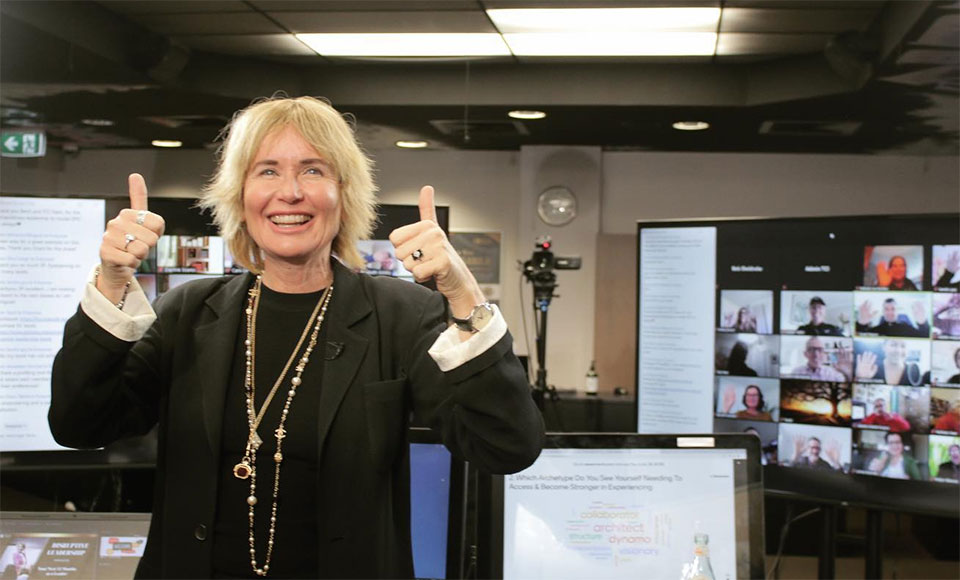Seven things you need to know now to become wealthy

When I was a kid, there was chaos around our family’s finances. Loose change mattered—my sister and I would hunt between the couch cushions or in the back of the car for coins.
When I was seven, my dad promised me $1 for every A I got in school. I got all As. But I never got a cent. Dad didn’t have it to give. Later, I lent my parents $1000 I’d saved and never got it back.
The way it was imprinted on me is, ‘money is hard, it’s all scarce, there’s no generosity.’ I learned low trust and that things wouldn’t be reciprocated.
So I come from a horrible relationship with finance and now I have many businesses and a mature, exciting relationship with wealth.
Some people are shying away from discussing wealth creation during a pandemic when millions of businesses around the world are going to the wall, but that’s putting your head in the sand. It has never, even been more important to make whatever money is coming in work for you, your team and family.
I’m not a financial adviser, this is not legal advice and I am here to entertain—but here’s what I know about wealth creation and how I turned it around.
I knew at the age of 12 I’d be a millionaire and I’m not talking pipe dreams of Richie Rich piles of gold as I lay looking at clouds drift by in the Western Australian sky. It was cold certainty that I backed up with hard work and certainty. And by my thirties, I was a millionaire. Then I wanted to be a cash millionaire. I did that, many times over.
And the key for me wasn’t—and still isn’t—wheeling and dealing or reinventing the wheel. It’s conscientiousness.
Yeah, I know. Not sexy, right?
Truth is most people who are successful in business are high on conscientiousness. In the Big Five personality test, I’m 98 per cent.
My wiring drove my financial success, but anyone can build up conscientiousness. It’s a trait that’s malleable.
To bring it, start creating values around it and living them. Take care that what you say is what you mean and what you mean is what you say.
If is fundamental to wealth and business success. And it means be cautious with promises to other people—don’t over commit.
I still work hard and unapologetically seven days a week which is a huge part of my foundations. I love it.
Mistakes people make with wealth creation? Thinking you have a good idea so it will be easy, or using magical thinking: ‘I deserve this so it will manifest itself.’
And don’t give me any of this law of attraction crap.
When you have 200k in salaries to pay every month, decisions in business have to be made way more clinically than waiting for the universe to send you a sign. Please.
The other part to the puzzle is massive planning.
I have mixed feelings talking about how well prepared my husband and I are now in uncertain times, but truth is we’re fine because we’ve been planning for a moment like this.
Our wealth buckets—fun and fabulous, taking care of business, education, play, giving and living—have been in place 13 years so that means the emergency fund is pretty big.
Ultimate financial freedom is about letting go of the need for immediate reward. It’s about sacrifice. It’s about opportunity cost: if you go on the holiday you can’t renovate. If you keep buying clothes, you’re not getting assets.
If you’re a drinker or smoker, quit them and quit whingeing. Dump takeouts. Jettison the junk. Boo hoo if it’s sacrifice.
Our wedding was in a pub and cost $5000. The cheapest wedding in world history because there was no way we were going to spend whatever we had to invest on a party.
If you don’t have discipline to pay the buckets every month, replace it with automation. Systemise it and have payments taken out so you don’t have to think about it.
Every Sunday morning, my husband and I still put aside a couple of hours to have not just scrambled eggs with pecorino and chilli flakes but a finance meeting.
We spend an hour or two discussing our wealth strategies, where we’re heading, how we’ve done in the past seven days.
It accelerates the results that give us meaning and purpose. It may not be everyone’s dream weekend pastime, but I feel empowered by still following and trusting the path I took to get to financial independence.
Remember, income does not determine wealth.
Whoever I ask, ‘What would solve your financial problems and what do you value’, they say more money and freedom.
Valuing freedom usually translates into, ‘I deserve a treat, I should buy that now’ so freedom gets mixed up with having stuff.
With buying what you want when you want.
If you value freedom, please, for the next 12 months dump freedom as a value and replace it with a commitment to self.
Self respect, self trust, self love. If you set yourself up financially by committing to yourself, you will have achieved that freedom. Done.
Commentary by Sharon Pearson. Here’s what you’ve missed?
World’s Best CEOs.
World’s Best Companies.
Rich List Index (Top Billionaires).
World’s Most Powerful Passports.
Bring the best of the CEOWORLD magazine's global journalism to audiences in the United States and around the world. - Add CEOWORLD magazine to your Google News feed.
Follow CEOWORLD magazine headlines on: Google News, LinkedIn, Twitter, and Facebook.
Copyright 2025 The CEOWORLD magazine. All rights reserved. This material (and any extract from it) must not be copied, redistributed or placed on any website, without CEOWORLD magazine' prior written consent. For media queries, please contact: info@ceoworld.biz








